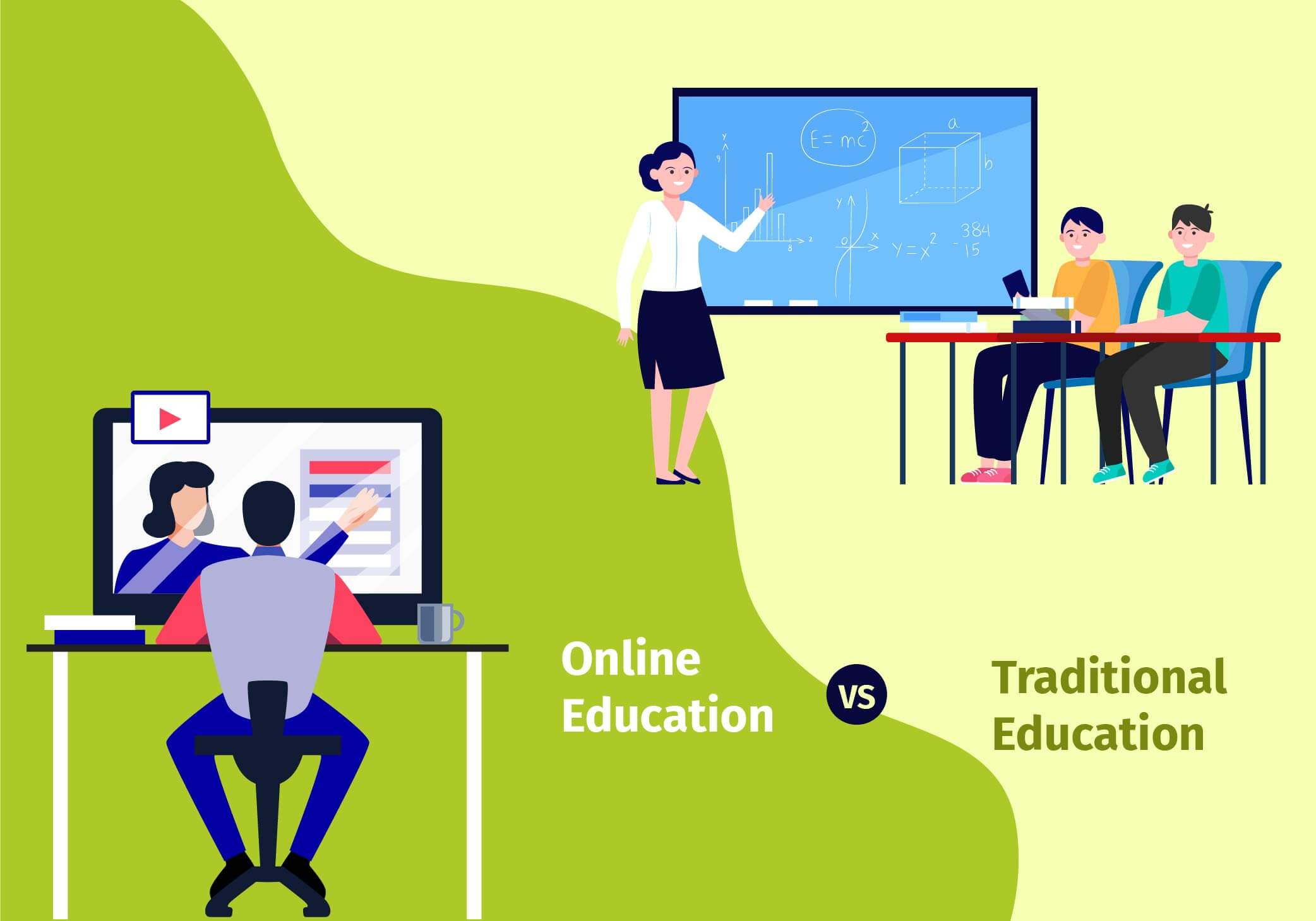When it comes to online education and traditional education, there are benefits and drawbacks, which is why students should be aware of what to expect before attending a classroom or logging into one. In this comparison, we’ll look at some crucial areas where students’ experiences can differ significantly.
What is online education
Online learning is a type of distance learning that takes place over the internet, with the teacher providing a course at a specific time (synchronous) or the students completing a course at their own pace (asynchronous). The content is delivered in the form of text, images, or videos. Features such as online assessments may be included, as well as interactive activities.
Also Read: What is Distance Learning: What are it’s Benefits?
What is traditional education?

Education traditionally takes place in a classroom. A teacher plans and teaches a specific topic lesson, using a variety of educational tools. For example, the teacher might present information on a blackboard or whiteboard, conduct classroom discussions, have groups or partners complete tasks, and engage students in individual exercises. Assign homework, class quizzes, or conduct informal assessments are part of the class.
Flexibility Factor
One of the most important factors to consider when weighing your options is how much time and energy you have each day to dedicate to your studies. Will you be able to attend full-time school/college or do you need more flexibility to accommodate your busy life.
In the first place, the most obvious benefit of online education is its flexibility. It allows you to work, support a family, and take classes all at the same time. Moreover, online classes also have deadlines, which gives students more control over how they spend their time. They can plan when to study, work on projects or assignments, attend lectures, and so on.
There is frequently a lack of flexibility in a traditional class format. You must attend your classes in person, which normally involves a commute and stringent scheduling. However, there are still a number of flexible class options available. If you want to take classes on a school/college campus, you can look for a school that can let you plan a schedule that fits your need.
Self-Discipline and Self-Motivation Factor
As previously said, attending school or college classes online provides students with greater freedom and control over their education. This, in return, requires a high level of self-discipline and self-motivation. You must be able to encourage yourself to finish essential reading and projects in an online class. You need to be able to manage your time effectively. However, these capabilities are also needed in traditional education.
Online lessons may be a good fit for you if you can work independently and manage your time properly. If you find it difficult to keep up with an online class, a more traditional environment can be more beneficial. It’s important to remember that becoming fully adjusted to online learning takes time. Setting a daily schedule and setting up a private workspace is just a couple of tactics you might use to ease into online education.

Social Interaction Factor
Many people wish for the traditional college experience, which includes classrooms, whiteboards, and walking around campus. Some people prefer to meet their teachers and classmates in person, and some people learn better that way. A traditional classroom format may benefit you if you are more of a social learner.
One common misperception about online education is that it does not require any interaction. In reality, your classmates and teachers are right at your fingertips! Collaborative resources such as Blackboard and video conferencing software are frequently used in online classes to stimulate regular exchanges, discussions, and brainstorming.

